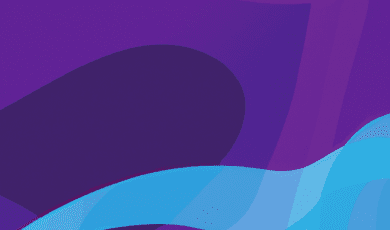
In today’s interconnected world, effective communication is no longer a luxury—it’s a necessity, especially within the healthcare industry. More than ever before, the need for medical translation services is reshaping global healthcare. Whether it’s a patient seeking treatment in another country, pharmaceutical research teams collaborating internationally, or emergency situations where every second counts, the ability to clearly and accurately understand medical information transcends language barriers.
But why is this growing field of medical translation so vital? What challenges do healthcare professionals face when navigating linguistic diversity, and how can a trusted medical translation agency provide the bridge that supports accurate and compassionate care? In this blog post, we’ll explore the transformative impact of professional medical translation, backed by research and real-world examples, and how it paves the way for a truly global conversation in medicine.
Increasing Demand for Medical Translation
Over the past two decades, healthcare has expanded beyond national boundaries. Medical tourism, international research partnerships, and the mass movement of people across continents have all contributed to a multicultural patient demographic. According to a report by the International Medical Travel Journal, millions of patients seek treatment abroad every year, and hospitals worldwide are adapting to serve foreign patients.
This globalization has made medical translation agency indispensable. Medical translation is more than converting words; it’s about interpreting complex terminology, nuanced symptoms, and precise treatment plans. A single mistake could have serious, potentially life-threatening, consequences. Therefore, trained professionals with deep knowledge of medical science, language, and culture are critical.
Challenges in Medical Translation: Why Expertise Matters
- Complex Terminology: Medical jargon, abbreviations, and specific procedures are often unique to each language. Literal translations are rarely sufficient, as words may not have exact equivalents.
- Patient Safety: Accurate translation of medical records, prescriptions, and consent forms is essential for effective treatment. An error could lead to harmful drug interactions or misunderstandings regarding allergies and pre-existing conditions.
- Regulatory Compliance: Many countries require medical documents to meet specific language and documentation standards for legal and ethical reasons. Translators must be familiar with relevant laws and guidelines.
- Cultural Sensitivity: Beyond words, translators must appreciate cultural differences in communication styles, attitudes toward healthcare, and expectations between patients and providers.
- Emergencies and Time Sensitivity: In urgent scenarios, the need for ultra-fast, accurate translation is even greater. Miscommunication can delay life-saving interventions.
Addressing these challenges demands a specialized medical translation agency with teams of linguists, healthcare professionals, and quality assurance experts. Such agencies ensure translations are not just accurate, but contextually appropriate and compliant with global standards.
How Medical Translation Agencies Drive Quality and Trust
Trust forms the cornerstone of healthcare. Patients must feel confident that their medical information is communicated accurately, privately, and respectfully. Here’s how top-tier medical translation agencies safeguard this trust:
- Expertise in Linguistics and Medicine: Translators are often certified-translation-guide-2026">certified in both language and medical fields, ensuring they understand complex terminology and concepts.
- Rigorous Quality Assurance: All translations undergo multiple review stages, including peer review and proofreading by specialized medical editors. This reduces the risk of errors.
- Confidentiality and Data Protection: Sensitive patient data is managed according to strict privacy standards such as HIPAA and GDPR, ensuring confidentiality at all stages.
- Technology Integration: Modern agencies leverage translation memory tools and glossary databases to improve consistency and speed, particularly for regular clients or large-scale projects.
- Customization and Cultural Competence: Services are tailored to patient demographics and local regulations, ensuring clear and effective communication.
By partnering with a trusted medical translation agency, clinics, hospitals, and research organizations can ensure reliability across all their translated communications, from patient intake forms and discharge summaries to pharmaceutical labels and clinical trial protocols.
Real-World Impact: Stories of Medical Translation in Action
Consider a patient from Brazil seeking specialized treatment in Germany. Her Portuguese medical records must be translated into German for her doctors to fully understand her medical history and allergies. The translation must be accurate to prevent misdiagnosis, and any cultural sensitivities must be considered for effective communication.
In another example, international teams collaborating on COVID-19 vaccine research relied on precise translation of research findings and clinical trial data to accelerate the global response. Multinational pharmaceutical companies routinely require label translations, clinical trial documentation, and patient information leaflets customized for every country in which they operate.
The work of medical translators extends to everyday scenarios as well—interpretation of telemedicine appointments, patient education brochures, or even mental health resources for refugees and migrants. Each instance demonstrates how the world is able to talk, heal, and thrive by bridging language divides.
The Digital Age: Technology’s Role in Medical Translation
Technology is transforming medical translation. While human expertise remains irreplaceable for nuance and context, artificial intelligence (AI) and computer-assisted translation tools now streamline the process, reduce turnaround times, and enhance consistency.
However, machine translation alone seldom meets the stringent quality standards of healthcare. Post-editing by medical experts is always required, as AI may misinterpret context or miss colloquialisms unique to medicine. The best medical translation agency will combine skilled professionals with up-to-date technology for optimal results.
Digital communication platforms have also made multilingual patient support more accessible. Virtual appointments with instant language interpretation, translated informational websites, and global telemedicine are redefining what it means for the world to speak the universal language of health.
Investing in the Future of Connected Healthcare
As the world becomes more connected, the importance of medical translation services cannot be overstated. Lives quite literally depend on the ability to accurately and compassionately communicate across languages and cultures. From life-saving surgeries to groundbreaking research to everyday check-ups, medical translation bridges the gap in healthcare, ensuring that every voice is heard, every story is understood, and every patient receives the care they deserve.
If you’re a healthcare provider, researcher, or patient navigating international treatment pathways, consider working with a reputable medical translation agency to guarantee clarity, compliance, and care. In the world of healthcare, accurate translation doesn’t just break down language barriers—it builds the foundations for healthier communities, stronger global partnerships, and a world where everyone has a voice in their own care.
Explore more about how you can access professional medical translation solutions and support seamless communication across borders by visiting our trusted medical translation agency partner.








